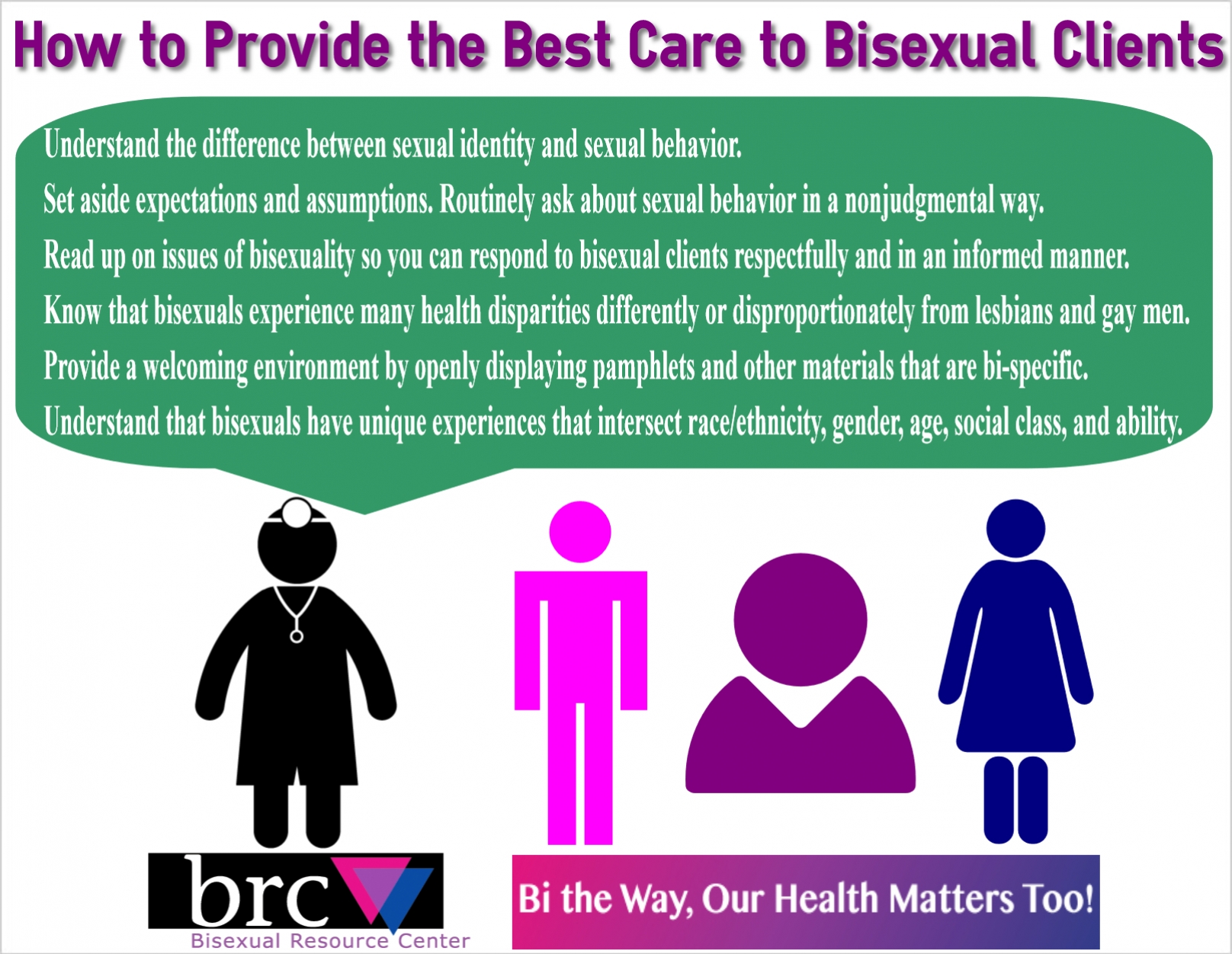
Today Bisexual Health Awareness Month provides action steps for healthcare professionals who treat youth in order to boost their bisexual+ competency.
Bisexual youth are less likely than gay and lesbian youth to disclose to their physician about their sexuality. Therefore, there are many ways that healthcare providers can better care for their bisexual+ (e.g. bisexual, pansexual, queer, fluid, no label) clients — Because our health matters too!
A report by the National LGBTQ Task Force provided several tips to healthcare providers who treat bisexual individuals, including:
- Not making assumptions when working with bisexual clients; Treat us as individuals, not stereotypes!
- Supporting and validating people’s diverse experiences and identities; Listen to bisexuals and what we need
- Knowing that a person’s sexual behavior and sexual orientation are two different things
- Including “bisexual” when talking to clients about sexual orientation; It’s not just gay and lesbian!
Other tips and action steps you can follow as a healthcare professional are:
- Recognizing that sexual orientation can be complex. Learn more about this particular area with the Klein Grid
- Having bisexual+ materials in your waiting area, like our brochure about mental health in the bi+ community
- Knowing that your bisexual+ clients are not just impacted by biphobia; They also experience other forms of discrimination such as transphobia, racism, ageism, and ableism that significantly impact their health
- Making your medical practice more welcoming and inclusive by displaying information about bisexuality+
- Connecting your bi+ clients with their community; Bi+ groups are listed via BRC.
- Learning more about bisexual+ health issues with these reports and materials and brushing up on your Bi 101 with this bisexual issues presentation
- Becoming listed as a bisexual-aware health practitioner on the BiZone Directory
Today’s Featured Resources: E. shares their experiences with therapists in hopes more will become bisexual+ competent. And, for Bi Health Month this year, Samati Niyomchai shares his experiences with his doctor, which are more exception than rule.
How do you think health providers can better care for bi+ youth? Leave your thoughts and ideas in the comments!